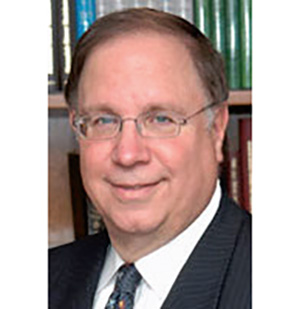
The decision by the city of Dearborn, Michigan, to honor Henry Ford should raise concerns for all Americans, not only Jews. Ford, the founder of the Ford Motor Company, accused Jews of being the cause of World War I. He also made references about the house of Rothschild being the symbol of avaricious bankers who plotted conflict for financial gain. As the hostilities in Europe increased, accusations that Jews were the instigators of wars for profit became more frequent.
In 1920, the first American edition of the “Protocols of the Elders of Zion,” a known forgery published by the Czarist Russian secret police to justify persecution and pogroms directed at Russian Jewish citizens, was published in “The Protocols and World Revolution” by Boris Brasol, a leader of the Russian monarchist movement in the U.S. By the end of the year there were three editions from which to choose. Brasol was responsible for convincing Henry Ford of the authenticity of the “Protocols,” which Ford then published in his “International Jew” series in the Dearborn Independent.
Titled “The International Jew: The World’s Problem,” the first article in this consecutive series appeared on May 22, 1920, and then sporadically until 1927.
The hostile slanderous nature of Ford’s anti-Semitic articles is evident in their titles, which included “The Scope of Jewish Dictatorship in America,” “Jewish Gamblers Corrupt American Baseball,” “How the Jewish Song Trust Makes you Sing,” “Jewish Jazz Becomes Our National Music,” “How Jews Gained American Liquor Control” and “The Jewish Associates of Benedict Arnold.”
When the first of these essays was published in 1920, the Dearborn Independent’s circulation was 72,000. In 1922, its circulation reached 300,000. By 1924, the readerships had increased to 700,000, just 50,000 fewer that New York City’s Daily News. Millions of Americans, especially from rural regions, who knew little of Jews except through rumor or religious studies, were exposed to the Protocols’ myths about a worldwide Jewish conspiracy.
When asked in 1921 why he had chosen to publish the series, Ford explained that he was “only trying to awake the Gentile world to an understanding of what is going on. The Jew is a huckster, a trader who doesn’t want to produce, but to make something out of what somebody else produces.” He also blamed them for subversively instigating war behind the scenes for their own profit.
Ford and the Dearborn Independent succeeded in taking established myths and adding an international component to them. Had the subject not already resonated so strongly among such a wide range of Ford’s readers, he would have terminated the series. But a very large number of them, including college professors, Christian clergy and the uneducated, sent him money, praised him for assailing the Jews, and clamored for more information.
Adolf Hitler acknowledged that Henry Ford’s “The International Jew” influenced him in writing “Mein Kampf,” and had a picture of Ford hung on the wall in his Munich office. “I regard Henry Ford as my inspiration,” Hitler told a reporter for the Detroit News. In 1938, Hitler sent his personal greetings to Ford on the occasion of his 75th birthday, and conferred upon him the Grand Cross of the German Eagle, the highest honor that could be bestowed on a foreign national.
“The International Jew” also influenced Baldur von Schirach, Reich leader of the Nazi Students’ Federation, and future leader of the Hitler Youth. After reading “Der Internationale Jude” in 1924 at the age of 17, a year prior to hearing Hitler speak for the first time, von Schirach remarked that “the younger generation looked with envy to the symbols of success and prosperity like Henry Ford. And if Henry Ford said the Jews were to blame, why, naturally we believed him.”
Despite the acclaim garnered by “The International Jew” and its translation into a number of languages, his work was not universally accepted. Prominent periodicals of the time, including Current Opinion, The Outlook, The Century, Harper’s Weekly, and the Independent condemned the “Protocols,” “The International Jew” and Ford himself.
The Nation observed the significant increase of anti-Semitism engulfing the world in 1920 and concluded that “the chief responsibility for the survival of this hoary shame among us in America attaches to Henry Ford.” Historian Norman Cohn believed that “The International Jew” “probably did more than any other work to make the ‘Protocols’ more famous.”
On the eve of World War II, the “Protocols” were more popular than they had been even in 1920 before being exposed as a forgery. Americans believed what they read in the Dearborn Independent and “The International Jew” to no small degree because Ford employed images and stereotypes that Americans had already come to accept, and because of the enormous stature of Henry Ford.
The “Protocols” are dangerous not only because they are used as a political weapon and to justify social discrimination against Jews, but because they represent a threat to our way of life: democracy, individual
freedom, open society, modernity, reason, rationality and truth. Understanding the “Protocols” is imperative if we hope to combat this toxic conspiracy.
Partial list of sources: Neil Baldwin, “Henry Ford and the Jews: The Mass Production of Hate”; Leonard Dinnerstein, “Antisemitism in America”; Henry Ford, “The International Jew”; Seymour Martin Lipset and Earl Raab, “The Politics of Unreason: Right-Wing Extremism America”; Charles Reznikoff, “Louis Marshall Champion of Liberty.”
By Alex Grobman, PhD
Alex Grobman is the senior resident scholar at the John C. Danforth Society.













